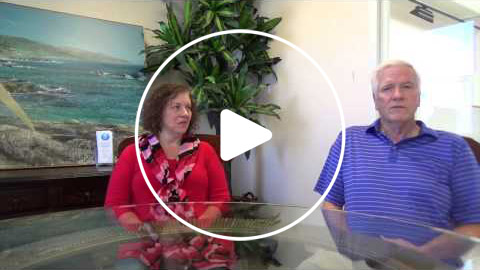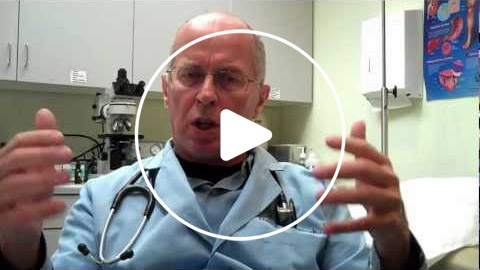 Published: March 17, 2020
Published: March 17, 2020
Youth– long sought after but often held in low regard while possessing it. We all know what it’s like, yearning for adult responsibilities, usually against the advice of our elderly, all while we should be enjoying the benefits of youth.
Contents
Reversing Aging
As I’m sure that most would agree, that if we could stop the aging process, say, somewhere in our mid twenties, in the hopes of preserving our wrinkle free and abundantly vibrant appearance, then life would be a fairytale. We wouldn’t have to deal with the inevitable consequences of growing older, like the deterioration of one’s health.
Classic tales of Hollywood, where only the rich and famous have access to the technology to stay young forever, only help to increase our curiosity about reversing the aging process. However, despite the high glam perception that is surrounding the idea that aging can somehow be stalled or reversed, aging researchers are closer than ever to finding a solution to help reverse some of the aging processes, potentially granting access to anyone who needs it.
Growing older is the primary health concern for many age related diseases such as diabetes, heart disease, cancer and stroke.
About Aging
Everyone has a chronological clock that can not be stopped, this is the number of years we have been alive. Sadly, turning older, year by year, day by day, minute by minute, is simply not something that we can avoid, at least not yet anyway. We also have what is known as a biological clock (or commonly referred to as epigenetic clocks) and they can vary greatly from person to person, depending on many factors, such as; the environment, genetics, diet, exercise, health issues, stress, sleep and other lifestyle choices, like smoking and drugs or alcohol. Someone who is 45 can have the biological clock of a 30 year old, or vice versa.

The epigenetic clock relies on the bodies epigenome, which is made up of chemical modifications that tag a person’s DNA, either through genetics or how healthy a person’s lifestyle may be. The patterns of these tags change throughout the course of life, and tracks a person’s biological age, which can begin to lag behind chronologically or surpass the person’s actual age. Essentially, by looking at these chemical tags a person’s biological age can be determined.
Scientific research is being conducted to understand how to reverse the aging process.
Effects of Aging
Age can make our bones brittle and our mental facilities decline. Today, there are many clinical trials focused on reversing some of these signs of aging, adding years to the biological clocks of patients who have undergone them.
One study recently conducted by geneticist, and pioneer in epigenetic clock research, Steve Horvath at the University of California showed that the marks on their genomes that represent their biological clock, as well as their immune systems, actually had improved despite the passing of time.
It was a small study, conducted over the span of a year, where nine healthy men, aged 51-65, were given a drug cocktail of three different substances, including human growth hormone and two common anti-diabetic drugs, one of them being metformin.

Another anti-aging study suggests that aging can be linked to a rogue cell found in the body, which works like a bacteria, and could potentially be linked to most age-related illnesses. These cells are senescent cells and they naturally build up over time. Sometimes, these cells are not removed, and if someone has too many of them, these calls can go on a destructive rampage within the human body, killing other healthy cells they may come in contact with. Researchers at the Mayo Clinic found that they could kill these senescent cells and reverse the ill effects of aging in mice. The findings showed that the mice lived up to 36 percent longer.
Gene Splicing and Aging
Researchers at the University of Exeter in England recently conducted a study to determine how to reverse the aging of a class of genes called splicing factors and the dysfunctional senescent cells. Splicing factors play an important role in operating genes smoothly but eventually switch off as we age older and senescent cells become more prevalent.
They discovered that by applying a chemical compound called resveratrol analogues, a substance naturally found in blueberries, dark chocolate, red wine, and grapes, can reverse the effect, ultimately allowing the splicing factor to turn back on. Researchers were surprised when cells began rejuvenating and regaining some features of youth.
Stem Cells and Aging

Additionally, stem cells are becoming more prevalent in the realm of anti-aging research. Known as the superstars of regenerative medicine, they can exponentially reproduce themselves and differentiate into most of the cell types found in the body. Research suggests that stem cells found in a region of the brain, known as the hypothalamus, may play a crucial role in how swiftly we age. A recent study conducted by Dr. Dongsheng Cai, from the Albert Einstein College of Medicine in New York, suggests that adding new stem cells to the hypothalamus in the brain may be the best option to delay old age.
He was able to determine the specific stem cell within the hypothalamus, these neural stem cells are responsible for producing new neurons that naturally decline over time. This impacts the speed at which the aging process unfolds, and by adding new ones, its possible to slow or even reverse various aspects of aging throughout the body. During the study, they noticed that the rats who received new stem cells, rather than the specimens whose neural system was left alone, survived at a much longer rate.
A combination of all of these trials and research may finally unlock the answer to the fountain of youth. A number more of these studies, that have similar foundations, are also being conducted, and with time, potentially very soon, researchers hope to make this available to all of the aging members of our population.
Call Now




